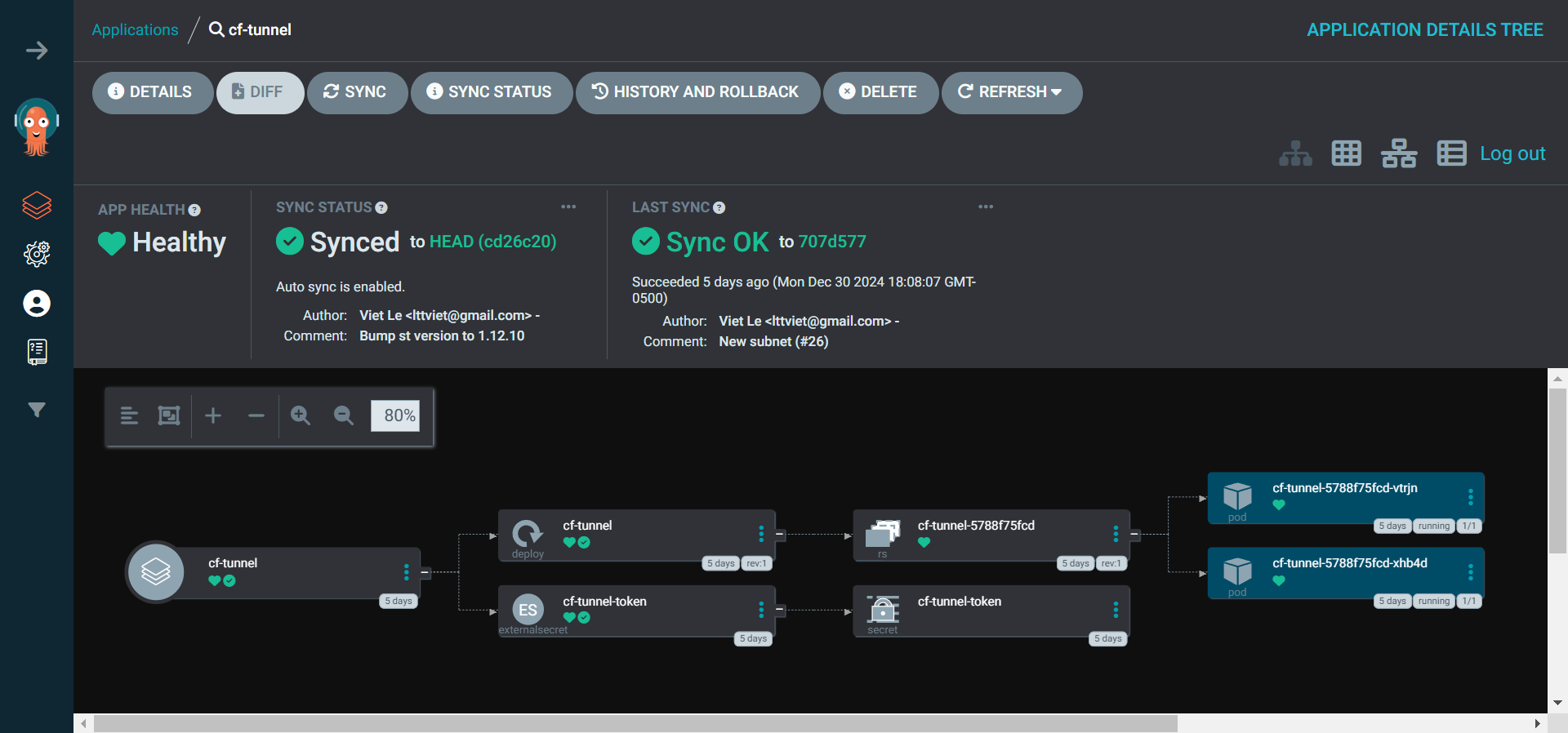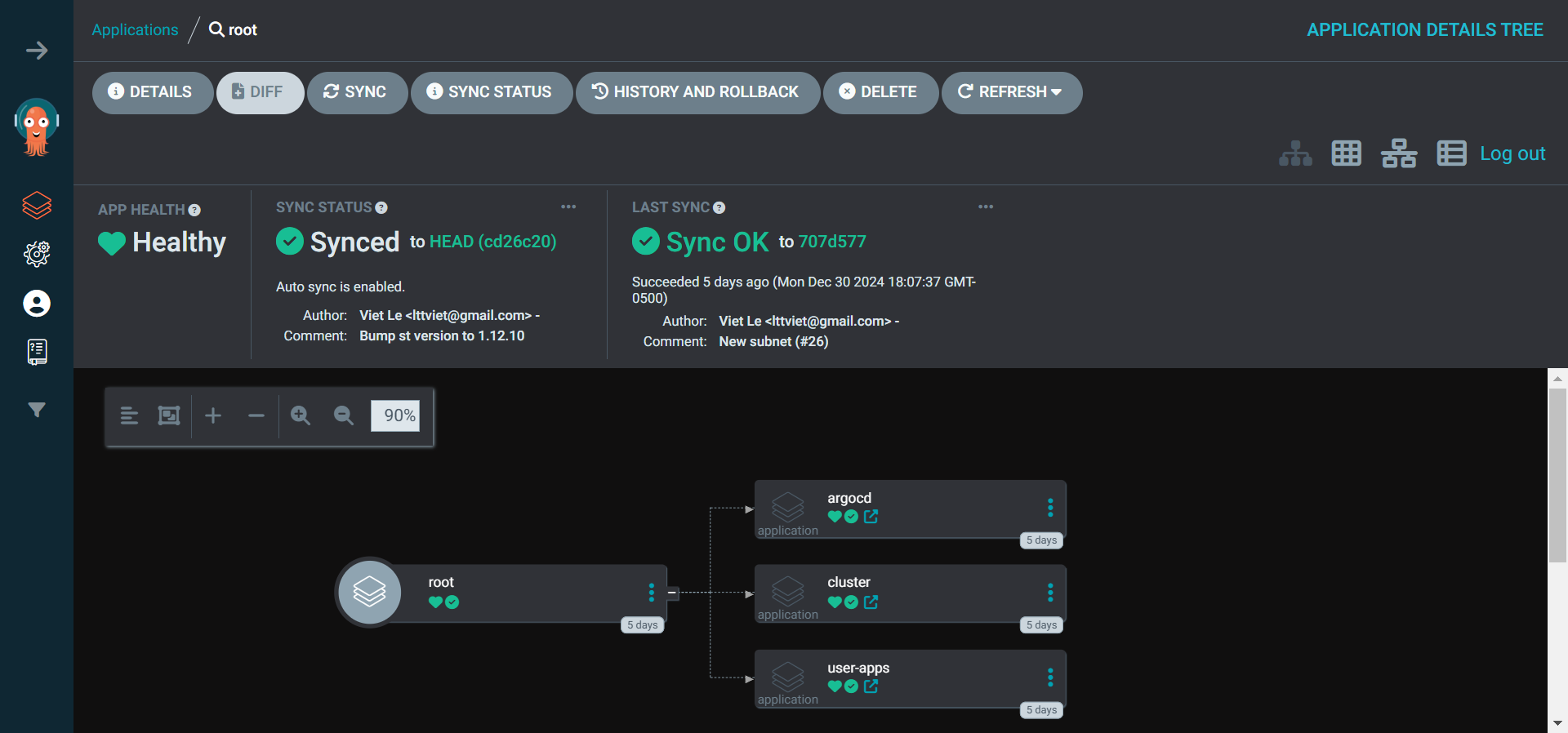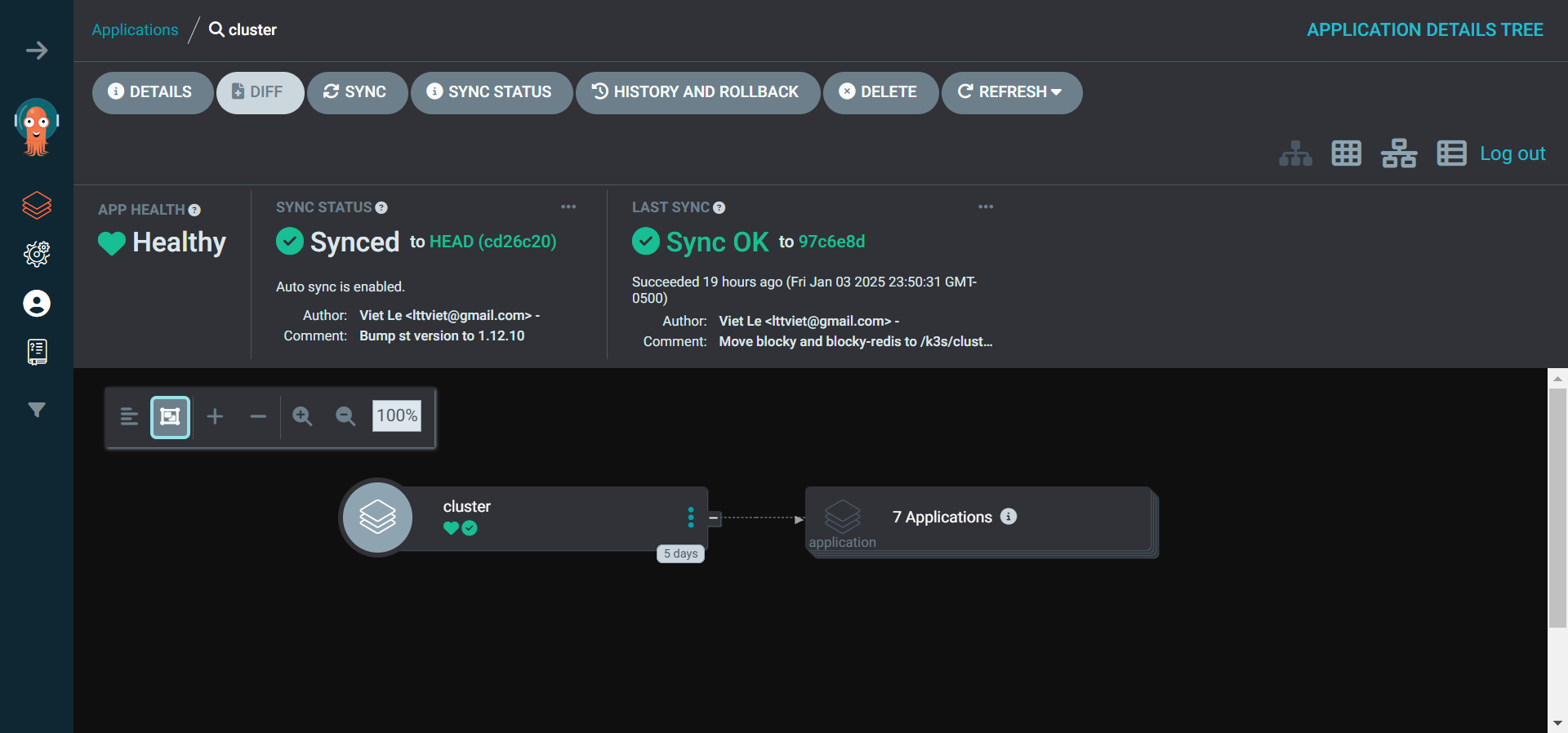K3s
Why K3s?
I run a 3-node Proxmox cluster. While I initially used Docker compose for app deployment across VMs, this process required manual node selection and lacked automated failover capabilities.
Though Docker Swarm was an option, I chose k3s - a lightweight k8s distribution - for its maturity, active community support, and perfect fit for my homelab needs.
K3s Install
# install k3s server
# I disable servicelb because I use metallb
curl -sfL https://get.k3s.io | K3S_TOKEN=123 sh -s \
- server --cluster-init \
--disable servicelb \
--kube-proxy-arg proxy-mode=ipvs \
--kube-proxy-arg ipvs-strict-arp
# install k3s agent
curl -sfL https://get.k3s.io | K3S_URL=SERVER_IP K3S_TOKEN=123 sh -s agent
Argo CD
Argo CD enables GitOps in my k3s cluster - using my git repo as the source of truth where each commit triggers a deployment.
Argo CD Install
kubectl create namespace argocd
kubectl apply -n argocd -f https://raw.githubusercontent.com/argoproj/argo-cd/v2.14.0-rc3/manifests/install.yaml
Example
Here's how I deploy Cloudflare Tunnel with Argo CD:
apiVersion: argoproj.io/v1alpha1
kind: Application
metadata:
name: cf-tunnel
namespace: argocd
finalizers:
- resources-finalizer.argocd.argoproj.io
spec:
project: default
source:
repoURL: https://github.com/lttviet/settings.git
targetRevision: HEAD
path: k3s/apps/cf-tunnel/overlays/dev
destination:
server: https://kubernetes.default.svc
namespace: cf-tunnel
syncPolicy:
automated:
prune: true
selfHeal: true
syncOptions:
- CreateNamespace=true
Argo CD checks my repo every 3 minutes and automatically applies any changes in the specified directory. The web UI provides clear visibility into deployment status:

Advanced Configs
Insecure ArgoCD Website
Since Traefik handles TLS termination, I can disable TLS in Argo CD website.
patches:
- target:
kind: ConfigMap
name: argocd-cmd-params-cm
patch: |-
apiVersion: v1
kind: ConfigMap
metadata:
name: argocd-cmd-params-cm
data:
server.insecure: "true"
Helm Support in Kustomization
Most apps give me plain manifests, but for some that only have helm charts, this allows me to install helm charts inside kustomization.yaml.
patches:
- target:
kind: ConfigMap
name: argocd-cm
patch: |-
apiVersion: v1
kind: ConfigMap
metadata:
name: argocd-cm
data:
kustomize.buildOptions: "--enable-helm"
App of Apps Health Check
When I deploy app of apps, I want the parent app to be healthy only when all its children apps are healthy. This feature was removed in a previous Argo CD version, but can be patched in.
patches:
- target:
kind: ConfigMap
name: argocd-cm
patch: |-
apiVersion: v1
kind: ConfigMap
metadata:
name: argocd-cm
data:
resource.customizations.health.argoproj.io_Application: |
hs = {}
hs.status = "Progressing"
hs.message = ""
if obj.status ~= nil then
if obj.status.health ~= nil then
hs.status = obj.status.health.status
if obj.status.health.message ~= nil then
hs.message = obj.status.health.message
end
end
end
return hs
Repo structure
Root level
k3s/
├── apps/ # User-facing applications
├── argocd/ # Argo CD manifests
├── bootstrap/ # Initial cluster setup
├── cluster/ # Cluster-wide applications
└── patches/ # Custom patches for k3s
Inside /k3s/apps
k3s/apps/cf-tunnel
├── base
│ ├── deployment.yaml
│ ├── external-secret.yaml
│ └── kustomization.yaml
└── overlays
└── dev
└── kustomization.yaml
Each app follows the kustomize overlay pattern. This is overkill for homelab, but it's a good practice for production.
In production, ideally there are different environments for each app.
I can have /overlays/dev, /overlays/staging, /overlays/prod, etc.
Bootstrap Process
The root app monitors the bootstrap directory which bootstraps the cluster through three main applications:
- Self-managed Argo CD.
- Cluster infrastructure components
- User-facing applications

Cluster app and user-facing apps have multiple child apps under them.
